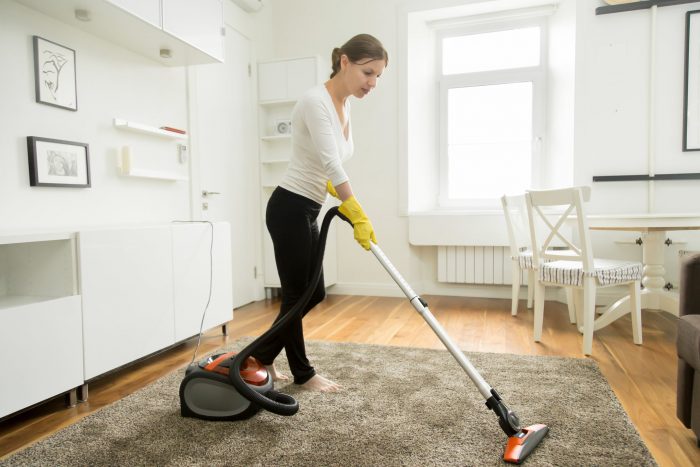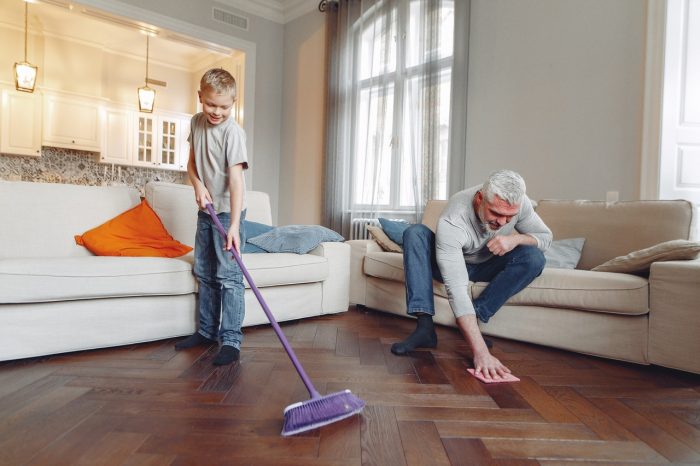Our homes should be a safe place for us to relax and heal from what we have faced in the world. Unfortunately, by dirty hands, shoes, clothing, and telephones, we end up taking the world and all its germs home with us. We need to become more vigilant and make efforts to sanitize during this season, where coronavirus strikes every country and every home.
You might think germs have an advantage in the ongoing war between yourself and household germs. They can be almost everywhere at once, unlike you. So when it comes to hand-to-hand combat, you might be too nervous or tired, or you might have better things to do. But this is a top priority.
Cleaning should not be contrasted with disinfecting or used interchangeably. The former means that you eliminate germs but don’t kill them, while the latter means that you are actively destroying them. The distinction is crucial because you can effectively clean surfaces but may not be disinfecting them, allowing the germs and bacteria to fester and grow. To sanitize your home, read these tips.

Start In The Kitchen
When you clean something in your house, you can determine what kind of gloves you are going to wear. Rubber gloves are more sturdy and reusable, but disposable latex gloves are also perfect.
Only try to wash your hands with warm water and soap after using cleaning items. Kitchen surfaces are not only capable of harboring the bacteria we pass from our hands and belongings but also foodborne bacteria. So, it is particularly necessary to properly disinfect products in the kitchen.
The light fixture, cabinet, and appliance in your kitchen probably have some sort of handle or control panel which is touched every time it is switched on or opened. When any surface is reached after preparation of raw food or beforehand washing, bacteria such as salmonella can be transferred. All of these surfaces should be cleaned with Clorox Disinfecting Wipes multiple times daily, particularly after food preparation.
Clean The Corners
Wash and disinfect countertops, sink faucet and handles, handles for the refrigerator, and cutting boards. Check the instructions for specialized countertops. Clean with dishcloths that you can throw with hot water in the washer. Regularly replace towels and dishcloths. Clean up spills on the kitchen floor so that no more dirt and bacteria are attracted.
With a disinfecting solution that does not contain chlorine, disinfect computer keys, light switches, telephones, and remote controls.
Use Hydrogen Peroxide When Cleaning
You’ve definitely used hydrogen peroxide before applying a bandage to clean a wound, but did you know it’s useful for household cleaning too? This natural product is a perfect stain remover for carpets and clothing and is an outstanding scum buster for your tub and tiles in combination with vinegar. And unlike vinegar, it has no visible smell, nor needs it to be diluted with water. However, the combo can help you sanitize your space.
It is easiest to use out of a spray bottle. It’s also useful to wash your produce and to brush your teeth. Remember, if you’re going to put it in a spray bottle, it has to be dark and opaque. Light can kill any hydrogen peroxide that has disinfecting qualities.
You Can Use Baking Soda
Baking soda is not a disinfectant but, when combined with other natural disinfectants such as vinegar, it is an effective cleanser. Baking soda has some grit, and you can blend it with water to make a paste with powerful scouring power making it a perfect cleaner for microwave and refrigerator caked-on food.
To polish brass and copper, blend it with lemon juice and combine with vinegar to unclog a drain. And just as it works to deodorize your fridge, baking soda even works fantastically to remove odors from carpets.
Soap And Water Are The Basics
If you are not dealing with a heavy-duty germ situation and just want to keep your house clean, then soap and water are the original environmentally-friendly cleaners. Soap offers a lather that can bring together oil and water in a way that absorbs and suspends debris so it can be rinsed away. Plus, soap will still sanitize your surfaces.
So a bucket full of soft, soapy water is always the best bet you can put on floors, countertops, and other home surfaces.

Conclusion
With or without coronavirus, let us keep our homes clean by following these basic tips. Click here for more information and updates about coronavirus. There is no time like to now to sanitize your home.
































